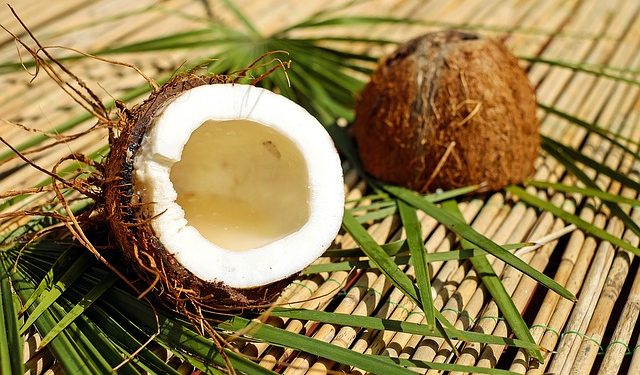Coconut milk and coconut water have become synonymous with eating healthy. Both are derived from the same trees that produce nuts and seeds, but the difference is in how it’s processed. Coconut water is a lighter drink made by steaming and heating the water in a small pot. Coconut milk, on the other hand, is a concentrated form of the same beverage that’s been condensed into a thinner liquid.
In order to get the full benefits of coconut milk, you’ll need to use pure, fresh coconuts. Unfortunately, they can be quite difficult to find. Fortunately, they’re more readily available in the South Pacific country of Malaysia, where they’re grown in abundance. While the coconut milk that comes from this country is not generally considered to be as pure and natural as the coconut water that originates from Indonesia, it does still taste quite good. For the sake of comparison, try and substitute this type of coconut milk with the regular variety if you are on a strict diet.
Coconut water is packed with healthful benefits, too, but only justifiably so. This type of milk is rich in electrolytes, which are necessary to keep your entire body healthy. In addition to that, it contains a host of antioxidants, including vitamin E and the powerful duo of lutein and quercetin. These two antioxidants help fight off free radicals and the cells that form them, making a difference both in your appearance and in your overall health.
When compared to white milk, coconut milk has twice the amount of calcium and protein. It has more potassium, iron, and vitamins A, D, E, and K. And unlike most other types of milk, it contains no lactose. Because of these health-giving qualities, coconut milk is great for people on milk-free diets. As a sweetener, it pairs perfectly with smoothies, ice cream, and sherbet, as well as numerous other food items. If you enjoy the taste of coconut milk but you’re lactose intolerant or gluten intolerant, however, you can use substitutes that don’t contain the lactose.
Coconut milk is a close relative to silymarin, another substance that is a powerful antioxidant. Research has shown that silymarin and coconut water have similar biological effects. These include improving lipid profile, reducing inflammation, and enhancing cell metabolism. Because the fats in coconuts are so healthy, they can be used to replace other fats commonly found in foods. For example, coconut oil is often used in place of vegetable oils like palm oil when replacing mayonnaise, heavy cream, or butter in a recipe.
If you are trying to lose weight, you might be interested in trying pure coconut milk for the first time. While coconut water tastes delicious and is quite filling, it does not have the same biological effects on your body as pure coconut milk. The reason is that coconut milk lacks the fat and calories that makeup almost two-thirds of this liquid. In addition, coconut milk contains fewer carbohydrates than regular milk, which makes it an excellent choice for diabetics. Coconut water has even been found to help improve the digestion of proteins and starches, which can also help to control blood sugar.
As coconut milk continues to gain popularity as a healthy lifestyle choice, more research is being done on its nutritional properties. Researchers have found that this liquid can help to slow down the progression of Alzheimer’s disease, improve circulation and cholesterol levels and fight against prostate cancer. Even more exciting news is that coconut oil can suppress the appetite, increase energy levels and increase cell regeneration. All of these health benefits make coconut milk worth a try and, if you haven’t given it a try yet, it’s definitely worth your while!
For years people have recognized the amazing health benefits of coconuts and other natural fruit extracts. It only makes sense to add this healthy liquid into your diet to reap the rewards. So what are you waiting for? Find a coconut milk brand you like and buy some. If you’re not sure how to find high-quality products, read labels and look for products that are GMP-compliant.






























